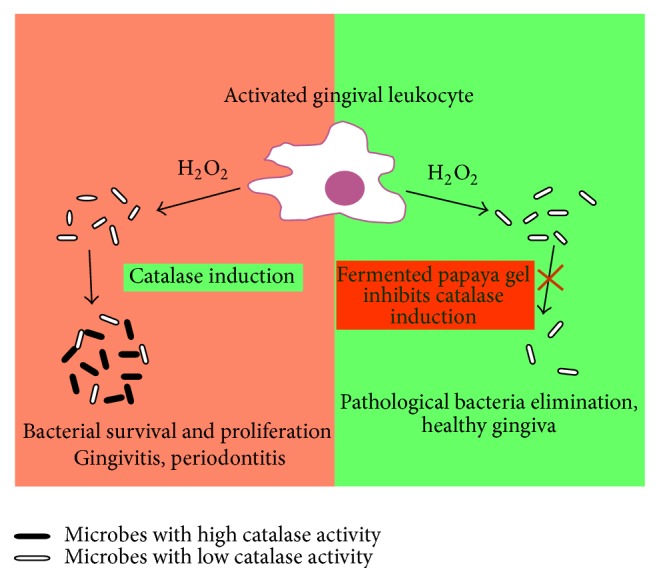Figure 5.

Standardised fermented papaya gel (SFPG) inhibits bacterial survival by the suppression of their adaptive antioxidant defence. Catalase constitutively expressed in pathogenic bacteria including Porphyromonas gingivalis could be further induced after phagocytosis due to intracellular oxidative stress in granulocytes/tissues macrophages. The adaptive catalase induction through bacterial redox sensitive regulons leads to reduced bacterial killing by reactive oxygen species and to their survival and dissemination (infection persistence). Thus, chronic bacteria-driven inflammatory process persists in the periodontal tissues (gingivitis, periodontitis). SFPG blocks, by unknown as yet mechanism, the adaptive antioxidant response of pathogenic bacteria to oxidative burst of granulocytes/tissue macrophages. Hence, bacteria become more sensitive to oxidative killing. Thus, bacterial load diminishes and the inflammatory process in the periodontal tissues subsides.
